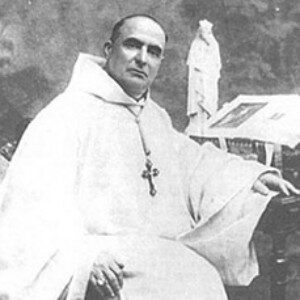If our readers were to admit now that the doctrine put forward in this book is a matter of considerable importance, we would already achieve a good result; but that is not enough.
The real purpose of this work is to get the reader to resolve: “I am going to live according to this doctrine.”
Consequently, it is time to say to the worker in Catholic Action, to the apostle who has just read these pages, especially if he has read them on retreat: “Your approval of the subject matter will have little or no effect unless it be united to a firm resolution to intensify your interior life.”
And so the aim of this fifth part is to help those on retreat to strengthen those dispositions which are absolutely necessary for an interior life that will make Catholic Action get results.
Convictions
Zeal will only get results in so far as it is united to the action of Christ Himself.
Christ does all the work; we are only His instruments.
Our Lord does not give His blessings to any enterprise in which men place trust in human means alone.
He does not give His blessings to enterprises that are kept going solely by natural activity.
Jesus does not give His blessing to an enterprise in which self-love is working in the place of divine love.1
Woe to the man who refuses to do the work to which he is called by God!
Woe to the man who worms his way into an enterprise without finding out what God wills for him!
Woe to the man who, in his work, wants to run things without really depending on God!
Woe to the man who lives an active life without taking steps to preserve or to regain the interior life!
Woe to the man who does not know how to make the interior life and the active life harmonize, so that neither suffers from the other!
Principles
1ST PRINCIPLE. Do not plunge headlong into Catholic Action from mere natural zest for activity, but consult God and make sure you are doing what you do under the inspiration of grace, and with the morally certain guarantee that it is His will.
2ND PRINCIPLE. It is rash and dangerous to remain too long engaged in work so heavy that it might make the soul incapable of performing the essential to the interior life. In such a case all, but especially priests and religious, should apply, even to the holiest of works, the text: “Pluck it out and cast it from thee.”
3RD PRINCIPLE. Draw up a schedule allotting to each activity a fixed time, and get it approved by a wise and experienced priest, of interior life. And then do violence to yourself, if necessary, to keep it, and control the flood of your activities.
4TH PRINCIPLE. For your own profit and for the profit of others, it is essential that you develop your interior life, before all else. The busier you are, the more you need the interior life. And therefore, the more you ought to desire it, and the more you ought to take steps to prevent this desire from becoming one of those futile longings which the devil so often uses to drug souls and hold them fast in their illusions.
5TH PRINCIPLE. If it happens by accident, and really as a result of God’s will, that the soul is under great stress of work, and finds it morally impossible to give more time to prayer, what then? There is a thermometer that never lies, and always tells us whether we are truly fervent, in spite of it all. Simply ask yourself if you really thirst for the interior life, and if, with all good will, you seize every possible opportunity to perform at least its essential practices? It so, you may remain at peace, and you can count on very special graces. God holds them in reserve for you; and they will give you the strength you need to continue your advance in the spiritual life.
6TH PRINCIPLE. As long as the active worker has not reached the point where he is habitually recollected and habitually dependent upon grace—a dependence and recollection which accompany him everywhere he goes—he is still not in a satisfactory state of the interior life. But in working for this necessary recollection, strain must absolutely be avoided. A simple, habitual glance of the heart rather than of the mind, is all that is necessary. This glance will be sure, accurate, penetrating, and will tell us clearly whether we are still under the influence of Jesus in the midst of our work.
This article is taken from a chapter in The Soul of the Apostolate by Fr. Jean-Baptiste Chautard, which is available from TAN Books.








